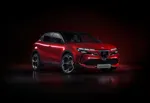But with 1,100 mobile vehicles, a full-time fleet manager, assistant fleet manager and two fleet administrators, it is also a fully operational fleet, with all the challenges that entails.
As competition is rife in such a diverse industry, service providers must ensure that they have an in-depth understanding of the fleet industry to succeed.
Fleet News spent a day at the group’s head office in Chesterfield for a step-by-step account of how the fleet company transfers its skills into a functioning fleet services provider.
The fleet
RAC Auto Windscreens’ Chesterfield head office is also home to a factory making windscreens, a call centre and training school and workshop where all its vehicles arrive to be fitted with power units and mobile phones and livery.
Overseeing the operation is Andy Gray, the group’s fleet manager. Unlike some, this is Gray’s only role with all of his time dedicated to managing the fleet.
Backed by 26 years in the industry, Gray has seen the fleet grow from 30 vehicles and eight fitting centres to thousands of vehicles operating nationally.
The 1,100-strong fleet of primarily Ford badged vans and cars clocks up 27 million miles a year with an annual fuel spend of £1.5 million. However, costs are kept low thanks to an in-house maintenance team.
Gray explained: ‘We have an image to keep so if there is even a minor knock on the bodywork, we repair it. We do our own maintenance and routine mechanical work which means vans can be back on the road within an hour.
‘We buy spare parts in bulk to keep costs down and have nine mobile mechanics who maintain the fleet. If something has a defect, it is quicker for us to do the work ourselves.
‘However, we do not do major warranty work.’
Gray operates an exclusively diesel fleet and while he has considered alternative fuels such as liquefied petroleum gas (LPG), he has yet to make the switch.
He said: ‘All the vans are diesel. We have looked at LPG but the problem is the refuelling infrastructure is not there. However, as a fleet we constantly review this.’
At the end of the replacement cycle, ex-fleet vehicles are sold direct to the motor trade or at auction. The majority go through auction with 70% being disposed of this way. This hasn’t always been the case though. Prior to RAC taking control of the group, the majority of the fleet were white vans and easier to dispose of.
Gray said: ‘Before the RAC takeover, 85% to 90% of vans were sold direct to the motor trade. This was when they were white but now they are orange.’
Another area of continuous review is risk management. Gray is proactive in managing accidents and has cut the number of at-fault crashes from 262 in 2003 to 223 in 2004. He achieved this through a constant drip-feed of information relayed to drivers. He explained: ‘We are constantly sending out safety leaflets to staff. There is a sticker on every dashboard reminding drivers to check oil, water and tyres.
‘Instead of sending a huge dossier of information, we drip-feed regular leaflets to drivers. We are also introducing risk assessments for everyone and we have also been looking at online risk assessment which we are hoping to introduce in the next couple of months.’
Running a hands-on fleet has enabled Gray to empathise with fleet needs in the service sector. Being a fleet manager, he knows the importance of keeping downtime to a minimum and running a cost-effective operation.
The service provider
RAC Auto Windscreens produces a quarter of a million windscreens from the Chesterfield depot for fleet customers such as HSBC, Royal Mail, Arval and National Car Rental.
Gray said: ‘Our fleet customers are categorised according to the size of their fleets. Fleets of up to 999 vehicles fall under our territory sales team and fleets of 1,000-plus vehicles are managed by our fleet team.’
The mobile fitting units operate from one of the 154 fitting centres spanning the UK from the Isle of Wight to Inverness and completed 509,373 windscreen repair and replacements last year.
The vans usually take enough equipment out to complete four jobs before returning to the base to collect more materials. Huge variations between glass and windscreen types make it impossible to carry every variant on board.
It has not been all plain sailing for the group though and as technology progresses, the windscreen repair industry has been put to the test.
A spokesman at the centre said technological improvements had hindered the repair industry.
He said: ‘Technology has made our job more difficult. Advances such as panoramic roofs make replacement more difficult. Take the new Volkswagen Golf: we have to replace the side window by removing the outside panel. It can’t be done from the inside.’















Login to comment
Comments
No comments have been made yet.